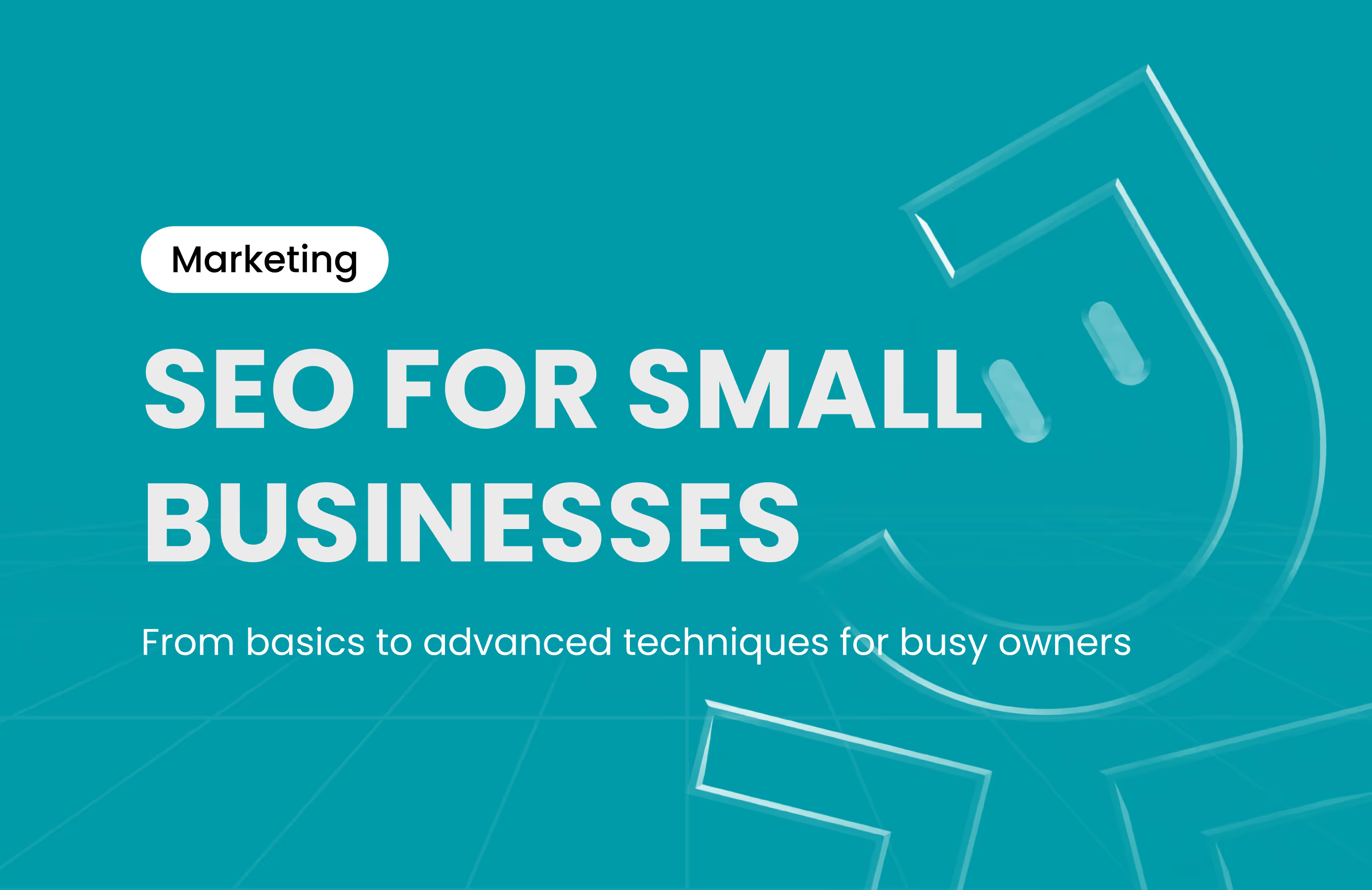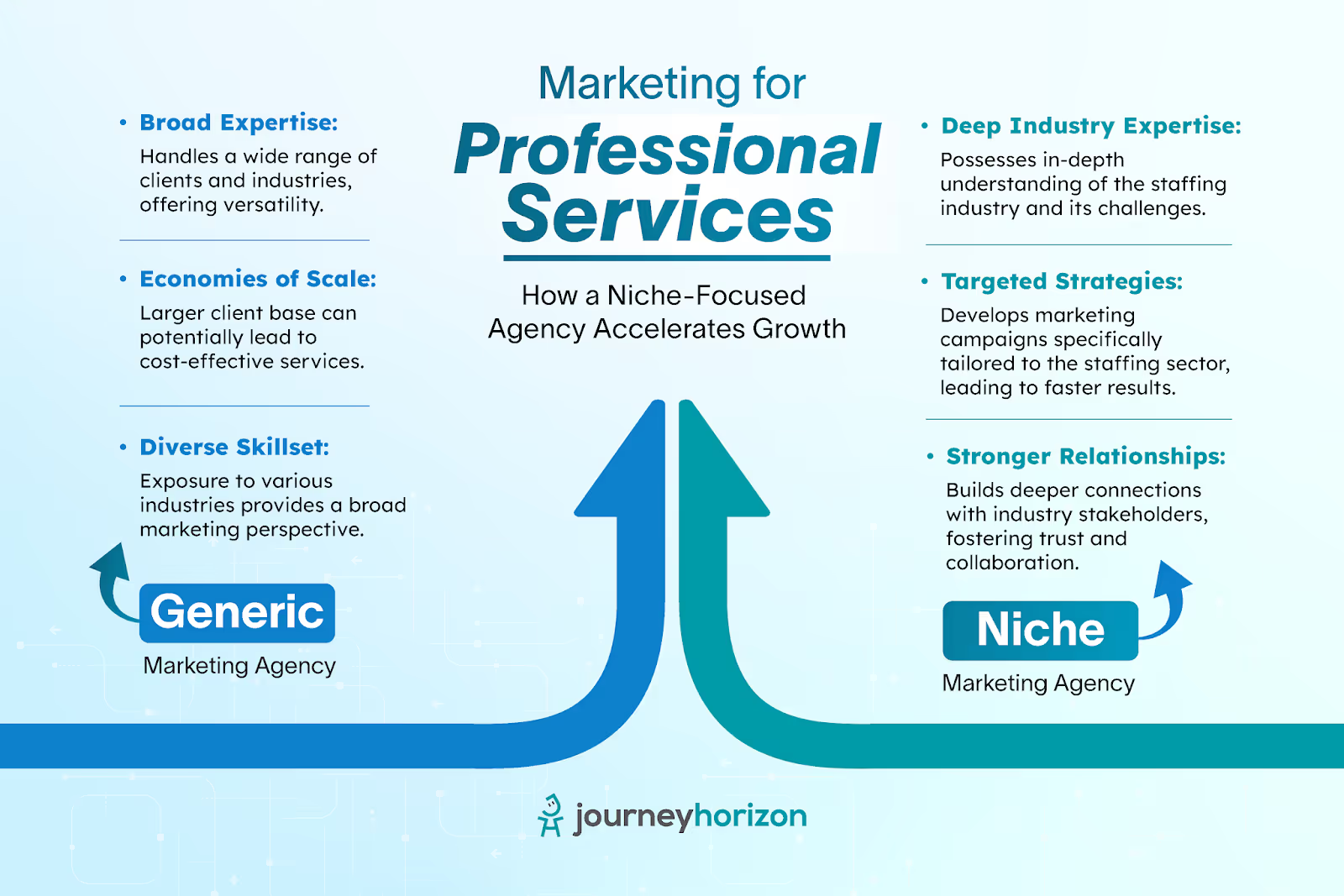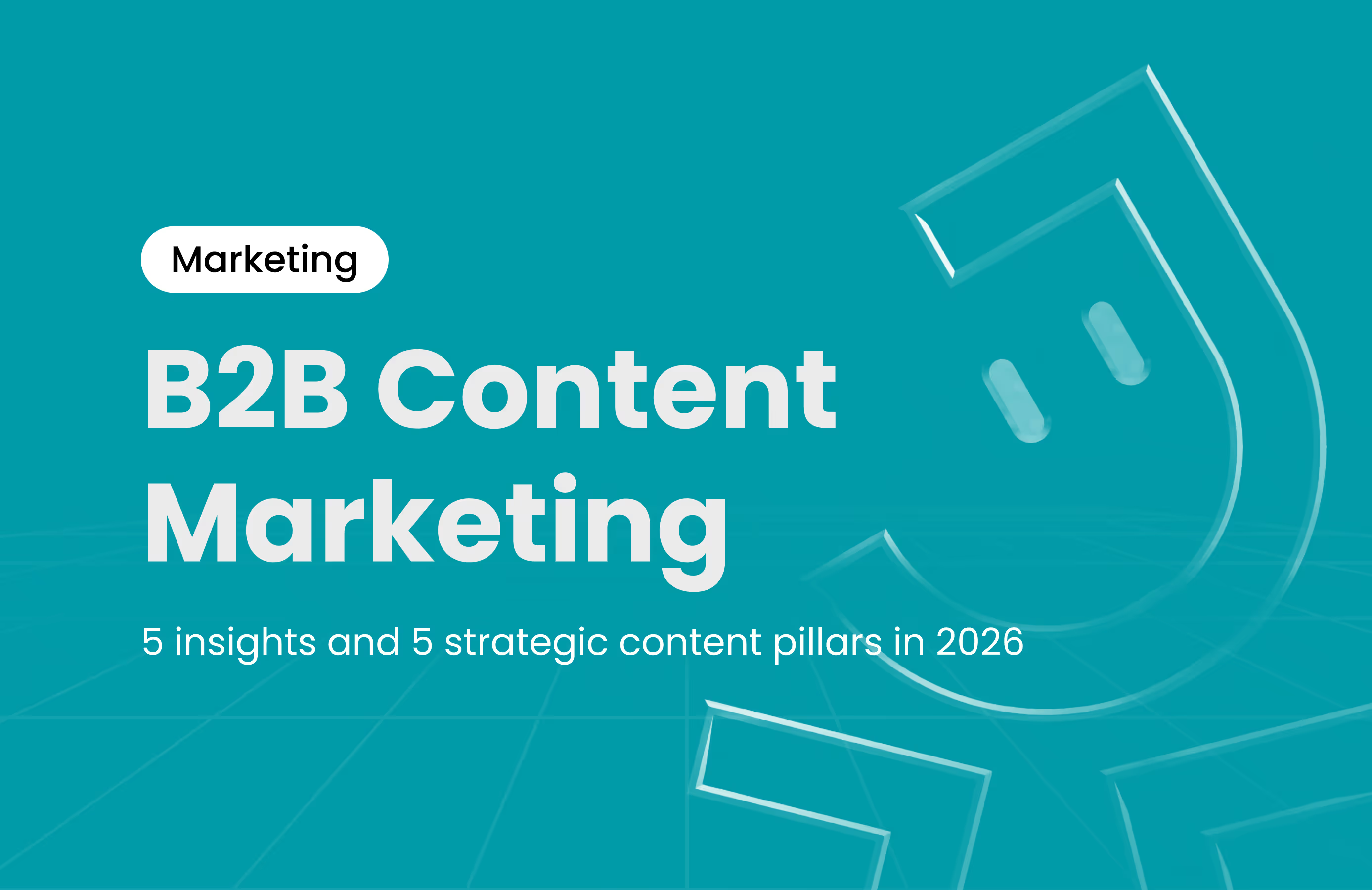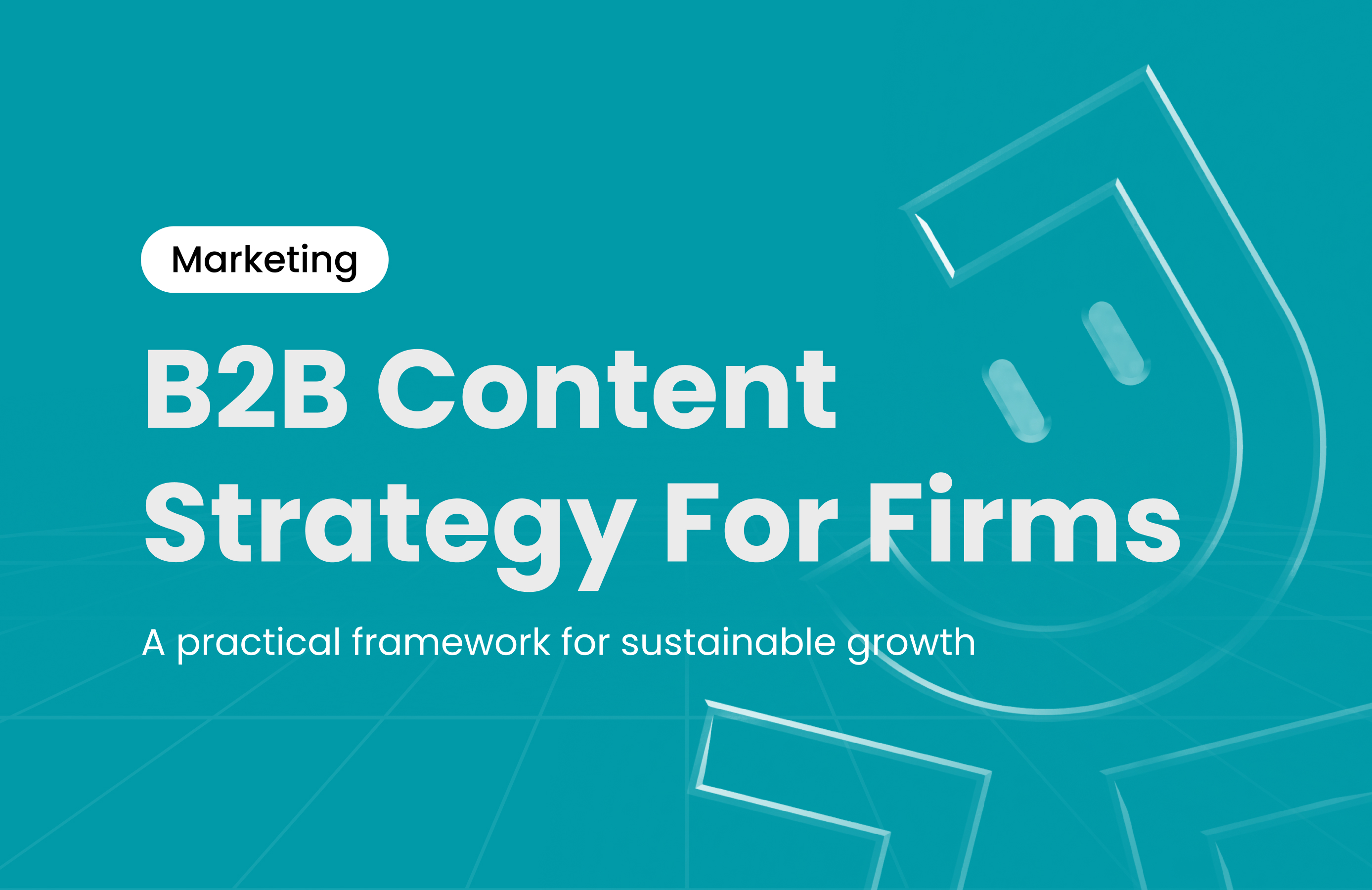SEO for small business: Smart Strategies with Affordable Costs

You don't need a $10,000/month SEO budget to outrank your competitors. Strategic SEO beats expensive SEO every time.
While organic search drives 53% of all website traffic that is far more than paid advertising, a right mindset about SEO, clear market understanding, and smart tactics to improve E-E-A-T, you can optimize SEO costs while increasing visibility and ranking on Google.
It’s critical to invest in Marketplace SEO for small businesses if your business model is online. Let Journeyhorizon help you grow your online presence without breaking the bank.
What is SEO and why should you care?
SEO stands for Search Engine Optimization. SEO for small businesses is not out of this meaning.
To be easy for a beginner, let’s imagine this: When someone types "ServiceNow Partner near me" or "ServiceNow Elite Partner in Canberra" into Google, you want your business on the 1st page.
That's what SEO for a small business does - helps Google understand your business is the right answer and make it appear on the 1st look.
That’s what we did for Novabridge - a ServiceNow Elite Partner in consulting and implementation in Australia.
➡️ Explore Novabridge’s Digital Transformation Powered by Journeyhorizon here!

Unlike Google Ads, which charge for every single click (usually $0.50-$2.00), showing up naturally in search results is free. Once you do the work to get there, you keep getting customers without paying for each click.
That investment in Affordable SEO for small businesses could bring 1,000+ visitors every month within 6-12 months and continue without more spending. This is how you increase organic traffic sustainably.

Especially if you run a B2B SME, your B2B marketing strategy cannot miss SEO from the beginning.
Why small businesses can actually win at this
Being small is actually an advantage when it comes to showing up on Google:
- Laser Focus: Big companies usually use Mass Marketing Strategy, targeting everyone. It’s effective for them but not for you with a limited budget. However, you can focus on specific customers in your area ready to buy. "Tax help for freelancers in Austin" is way easier to rank for than generic "accounting services." And people searching for that specific thing are much more likely to become your customers.
- Local Intent: Nearly half of all Google searches are people looking for local businesses. When someone searches "emergency plumber near me," they want a real local business, not a national chain. That's your opportunity to increase visibility and ranking quickly.
- Authenticity (Your EEAT Advantage): Google is getting better at recognizing real businesses with real expertise. Your personal story, actual customer reviews, and specific local market knowledge all help you show up in search results and naturally improve EEAT (Experience, Expertise, Authoritativeness, Trustworthiness).
Small Business SEO Best Practice: 3 things that actually work
If you want to show up on Google and actually get customers, you need these three things working together. Skip one, and you’re making it harder. Get all three right, and you’ll compete successfully, no matter what competitors are spending.
#1: Get Your Website Basics Right
Think of this as making sure your store has a proper front door. Most of this is one-time work - no coding degree required.
- Make sure your site works on phones: Test at Google’s PageSpeed Insights (free). Aim for under 3 seconds on mobile.
- Get the "secure" padlock: That lock icon next to your website address. Most hosting includes this free (Secure Sockets Layer certificate).
- Tell Google which pages to show: Submit your XML sitemap to Google Search Console (free).
- Fix broken links: Use a free tool like Screaming Frog to find and fix them.
- Add business information Google understands (Schema): Schema.org makes this copy-paste easy—your phone, address, and hours in a format computers understand.
A small business site that works properly often ranks higher than a big company's messy website.
#2: Answer Customer Questions
Create helpful resources that answer real questions. This is a crucial way to increase organic traffic.
- Use Google’s "People Also Ask" boxes: Search for your main service. Those expandable question boxes are real, high-intent questions. Write detailed answers.
- Create one good guide, break into smaller pieces: Write one comprehensive article (around 2,000 words) covering a big topic. Then create 4-5 shorter articles (800-1,200 words) going deeper. Link them together.
- Match what people want: A search for "Best CRM for real estate agents" wants recommendations - not definitions.
- Update old content regularly: Updating existing articles often works better than writing new ones.
#3: Show You're Legit (The EEAT Factor)
Google wants to recommend trustworthy businesses. Building that trust is straightforward and helps you improve EEAT:
- Show you've done the work (Experience): Put customer testimonials on service pages. Include before/after photos and specific results.
- Show you know your stuff (Expertise): Create a detailed "About" page-education, certifications, experience. Put your name on articles with a quick credential line.
- Get mentioned by reputable sites (Authoritativeness): Chamber of Commerce links or local news quotes tell Google you’re legitimate. One respected organization link beats 100 random directory listings.
- Keep Google Business Profile complete and active (Trustworthiness): Fill every field. Post weekly. Respond to every review.
All of this costs time, not money.
The Consistency Mindset: Choosing your SEO Engine
Success in SEO for small businesses isn't about massive spending; it's about massive consistency. As a busy owner, you need to decide which "engine" (time or expertise) you will commit to long-term. This decision determines how fast you will grow online presence and achieve high rankings.
Here are the three commitment levels, designed to help you increase visibility and ranking by matching SEO effort to your business capacity:
Level 1: The Self-Starter Engine (High Time, Low Expertise)
This pathway is ideal if you have 10-15 dedicated hours monthly to learn and execute basic tasks. You are trading your time for expertise.
- Commitment: Your time for learning and implementation (e.g., using Google Search Console, writing basic answers).
- Focus: Mastering the "Website Basics" and "Local Customers First" steps.
- Result Expectation: Slow but steady growth. You will likely see foundational improvement and the start of organic traffic in 6-9 months.
Level 2: The Acceleration Engine (Outsource Time, Own Strategy)
When your time becomes too valuable for day-to-day SEO execution, it's time to leverage external expertise. This accelerates results without requiring you to quit running your business.
- Commitment: Maintaining ownership of the overall strategy (e.g., deciding which customer questions to answer) while outsourcing high-impact, time-consuming tasks like content creation.
- Focus: Consistently answering customer questions and strengthening your business's Trustworthiness.
- Result Expectation: Faster, more efficient growth. Significant increases in organic traffic typically show within 4-6 months.
Level 3: The Full-Service Engine (Maximum Delegation)
If you are already growing rapidly and need a predictable, hands-off approach to compete aggressively, delegation is key.
- Commitment: Delegating strategy execution, content, and technical checks entirely to a specialized team. You only need to review monthly progress reports.
- Focus: Competing at scale and continuously ensuring every small business SEO best practice is met perfectly.
- Result Expectation: The fastest path to a dominant market position, often yielding initial results within 3-4 months.
The Consistency Secret: Most businesses fail at SEO not due to budget, but due to quitting after 2-3 months. Whether you choose Level 1 or 3, a 6-12 month commitment is the prerequisite for success.
2 SEO actions for small businesses to get more customers this week
1. Focus on Local Customers First
76% of people who search for something nearby visit that business within 24 hours. This is your fastest path to new customers.
- Google Business Profile (GBP) is Power: Complete profiles get 7x more visits. Fill everything.
- Photos make a massive difference: 100+ photos get 5x more calls. Update monthly.
- Reviews affect whether you show up: Send email with a direct link to leave a Google review. Respond to every review.
- Use location-specific words: Focus on specifics like "small business accounting in Austin". Put city and neighborhood names naturally in page titles, headings, and first paragraphs to increase visibility and ranking.
2. Get Featured in Google's AI Answers
Google shows AI-generated answers (Featured Snippets) at the top of search results.
- Why this matters: Being featured in AI answers means massive visibility even if you’re not ranked #1.
- How: Answer questions clearly in the first sentences, then detail. Break into numbered steps or bullets. Include real statistics and sources. Small businesses compete equally with big corporations here because Google’s AI cares about helpfulness.
Beyond the basics of SEO for small business: Where Specialization Wins
While mastering the fundamentals is essential for any small business, competitive fields often require moving beyond general SEO for small business tactics. When your business model involves connecting buyers and sellers, or operating on a highly specialized platform, the game changes dramatically.
This is where a specialized marketing agency comes in.
The Complexity of Marketplace SEO
For businesses operating digital marketplaces (like two-sided platforms or service hubs), standard local SEO advice falls short. You are not just optimizing one business; you are optimizing hundreds of listings, category pages, and two distinct user journeys (buyer and seller).
Achieving growth here demands a deep understanding of unique structural challenges, content scalability, and the specialized SEO tactics required to make every listing visible. Mastering SEO for marketplace platforms ensures every seller on your platform and your platform itself can thrive on Google, driving maximum organic growth. This level of optimization requires dedicated expertise that goes far beyond what a busy small business owner can manage.
➡️ Learn how to handle the unique challenges of platform visibility here: SEO for marketplace: Drive Growth with Organic Search.
The Power of a Specialized Partner
When you are competing against giants with huge resource pools, generic marketing efforts yield generic results. To truly increase visibility and ranking and sustain that competitive edge, you need a partner whose focus aligns perfectly with your growth model.
A specialized marketing agency doesn't just apply checklists; they integrate SEO directly into your platform development and business strategy. They understand that achieving long-term, predictable organic traffic means more than ranking for one keyword.

It means building a system of continuous improvement that strengthens your EEAT across your entire digital footprint. Choosing this strategic partnership is often the tipping point for small businesses ready to scale aggressively.
➡️ Discover the advantages of working with a focused team here: Win on Marketplace with a Specialized Marketing Agency.
FAQs
Q1: How long does it take to see results from SEO for a small business?
A: Real results, meaning a noticeable increase in organic traffic, typically begin to show within 4 to 6 months if you are consistent. For major growth and top rankings, commit to a 6-12 month strategy.
Q2: Should I focus on social media or SEO to grow online presence?
A: Prioritize SEO for small businesses. Social media is for awareness; Google Search captures high purchase intent. SEO provides free, consistent traffic from customers ready to buy, offering superior long-term ROI.
Q3: What are the most important factors to improve EEAT?
A: Focus on three areas to improve EEAT: 1) Customer Proof (reviews, testimonials). 2) Expertise (publishing deep, insightful content). 3) Trustworthiness (transparent contact info and certifications).
Q4: Is it better to hire a general marketing consultant or a specialized marketing agency?
A: To truly increase visibility and ranking against competitors, a specialized marketing agency is better. They provide advanced, niche strategies (like SEO for marketplace) that maximize the return on your commitment.
Q5: What is the single biggest mistake small businesses make with SEO?
A: The biggest mistake is inconsistency, quitting after just 2 or 3 months. SEO is a long-term asset. You must maintain a consistent mindset for at least 6-12 months to achieve success.
Ready to Get More Customers from Google?
You now have a practical roadmap that actually works for small businesses. The best time to start was six months ago. The second-best time is right now.
And if you’d rather have experts handle this for you, that’s exactly what Journeyhorizon does. We help small businesses show up on Google through marketplace development and smart digital strategies.
Talk to Journeyhorizon SEO experts about getting your business found on Google without breaking the bank.



